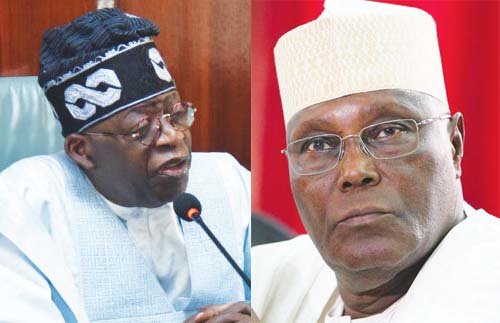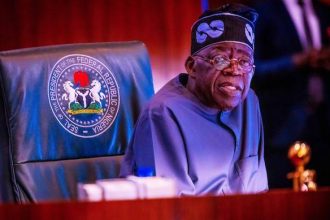President Tinubu’s Showdown with Atiku
President Tinubu has sought to halt former Vice President Atiku Abubakar’s petition regarding his academic records. The legal battle centers around allegations of inconsistencies in Atiku’s educational qualifications, which could have significant implications for his political career. As the nation watches closely, the clash between these prominent political figures raises questions about the importance of transparency and accountability in Nigerian politics.
The Petition Controversy:
President Tinubu Seeks To Stop Atiku’s Petition Over His Academic Records @NaijaNews #NaijaNews https://t.co/KdiGZJqxTu
— Naija News (@NaijaNews) July 20, 2023
Atiku Abubakar, a seasoned politician and a former vice president of Nigeria, declared his intention to run for the highest office in the land during the last presidential election. Shortly after his announcement, allegations emerged claiming discrepancies in his academic records. Critics have alleged that the former vice president provided conflicting information about his educational qualifications, and there were doubts regarding the authenticity of his certificates.
In response to these allegations, President Tinubu’s legal team filed a petition to challenge Atiku’s eligibility to run for the presidency based on his academic credentials. Citing the Nigerian Constitution’s provisions on educational requirements for presidential candidates, the petition argues that Atiku’s eligibility should be thoroughly investigated before he can proceed with his political ambitions.
The Importance of Transparency and Accountability:
In a democratic society, transparency and accountability are the cornerstones of good governance. Political leaders must be held to high standards, and any concerns regarding their eligibility to hold office should be addressed transparently and efficiently. The issue of academic qualifications is crucial, as it speaks to a candidate’s integrity and ability to uphold the principles they promise to champion.

Both President Tinubu and Atiku Abubakar are influential figures with vast political support. The legal dispute between the two has garnered significant attention and polarized public opinion. Supporters of President Tinubu assert that he is acting in the best interest of the nation by seeking clarity on the academic records of his political opponent. On the other hand, Atiku’s supporters argue that the petition is a politically motivated move to undermine his candidacy and derail his aspirations.
The Legal Battle:
As the case unfolds, legal experts have weighed in on the matter, highlighting the complexity of the issue. The Constitution of Nigeria stipulates that a presidential candidate must possess, at a minimum, a secondary school certificate or its equivalent. However, interpreting what constitutes an equivalent qualification can be challenging, leaving room for legal interpretation and debate.
Atiku Abubakar’s legal team has vehemently defended his eligibility, asserting that the former vice president meets the necessary educational requirements to run for president. They argue that any discrepancies in his academic records are mere administrative errors, not a deliberate attempt to deceive the public or violate the law.
The Outcome:
As the case progresses, the judiciary faces the responsibility of ensuring a fair and just resolution. The outcome of this legal battle will have far-reaching consequences not only for the two political heavyweights involved but for Nigeria’s political landscape as a whole. A ruling in favor of President Tinubu could potentially jeopardize Atiku Abubakar’s political career and reputation, while a ruling in favor of Atiku might bolster his standing and further fuel the controversy surrounding his academic records.
The clash between President Tinubu and Atiku Abubakar over the latter’s academic records underscores the importance of transparency and accountability in Nigerian politics. As the legal battle unfolds, it is crucial for the judiciary to apply the law impartially and make a well-reasoned decision that upholds the principles of democracy and the rule of law. Ultimately, the resolution of this case will shape the political landscape in Nigeria and serve as a precedent for future political disputes. Regardless of the outcome, it is a reminder that all public officials must be held accountable for their actions and qualifications, ensuring that the nation’s leaders are held to the highest standards of integrity and credibility.
Read more news about Tinubu HERE












